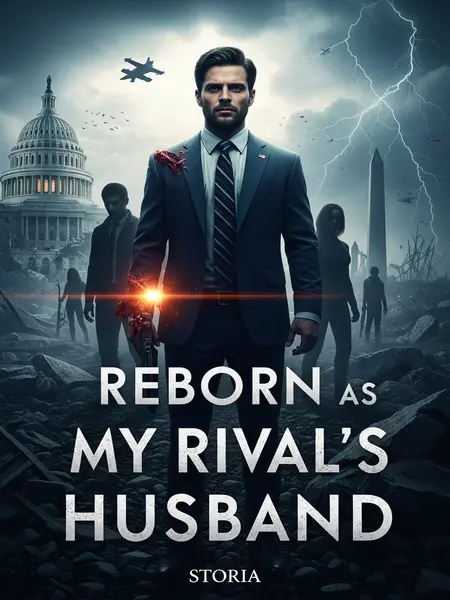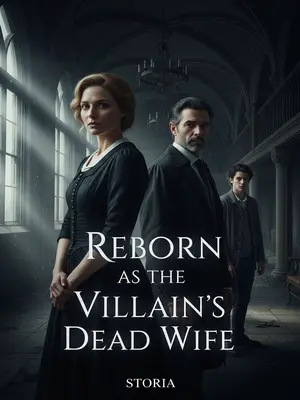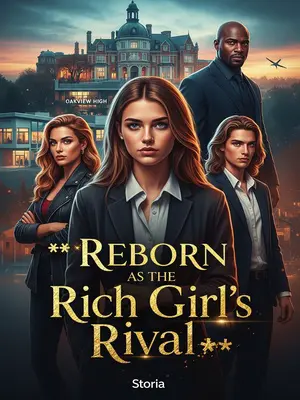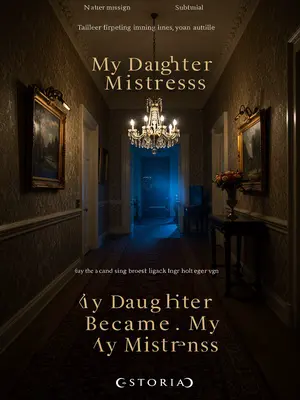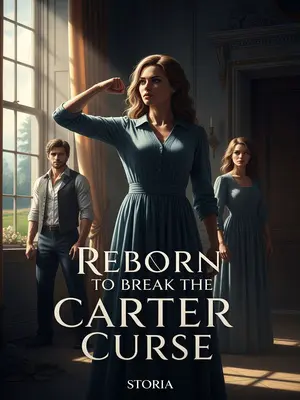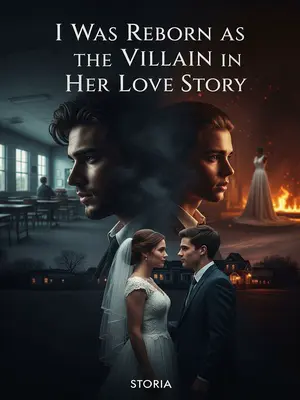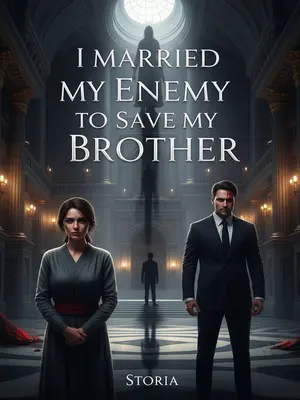Chapter 2: The Man Who Wouldn’t Hang
Rain tapped against the Capitol’s marble steps, March’s chill seeping through every crack. Seventeenth year of the Jefferson era, nineteenth day of March.
A cold drizzle painted the city in streaks of gray. Caleb Warren clutched the presidential gold sash, already sobbing so hard he could barely speak. Step by step, he followed Noah Jefferson up Capitol Hill to the old crooked-neck oak, wind rattling the battered branches. The tree, scarred and twisted by decades of storms, loomed as a silent witness to the end of eras.
Caleb couldn’t hold back anymore and cried out, voice ragged: “Mr. President, please—there’s gotta be something we can do. Isn’t there?” The plea echoed down the marble, heavy with desperation.
Noah Jefferson’s eyes were glazed, his voice trembling, but underneath surged both grief and raw anger. “No money, no food, the city’s gone, and the people want nothing to do with us. The folks who call themselves loyal? Just waiting for the next boss. The old families are ready to throw open their gates. What options do I have left?”
His hands shook as he spoke, knuckles white around the sash. “I’m not a president who lost his country, but all my cabinet are cabinet members of a lost country. For today’s matter, only death remains!”
The late March wind howled. The powerless, furious President Jefferson, Noah Jefferson, wiped rain from his eyes, hands shaking, the gold sash slipping through his fingers. He hanged himself on Capitol Hill—and Marcus Whitaker opened his eyes once more.
It was like getting hit by a truck—his lungs burned. The taste of rope and old dust gagged him. Every muscle screamed. The first taste of rebirth was pure agony.
Countless shards of memory, tangled with suffocating panic, crashed through Marcus Whitaker’s mind, wave after wave. At the same time, a wild surge of power flooded his limbs and bones. Somewhere, a church bell tolled, its echo lost in the darkness.
Pain—damn, it hurt like hell.
Caleb Warren stood nearby, still sobbing, completely unaware that the President’s soul had been swapped. Suddenly, he sensed something was off. The air felt charged, electric.
The President, who should’ve been at his last gasp, suddenly grabbed the gold sash and, in one motion, pulled himself up. The movement was rough, desperate, but undeniably alive.
Caleb’s scream split the air, his knees buckling as he stumbled backward, eyes wide as dinner plates. This—this isn’t possible!
Then he saw the President take the opportunity to kick the crooked oak’s trunk with a grunt. The old oak toppled, crashing down like a felled giant, scattering crows and dust.
Caleb’s jaw dropped. This is even less possible!
Before he could react, a pair of bloodshot eyes glared through the dust, like an old lion crawling out from a mountain of corpses and a sea of blood—eyes that could decide life and death with a glance, command the country with a word.
Arrogant, cold, Marcus’s stare dared the world: If I don’t fix this mess, who the hell will? There was a flicker of something ancient, almost primeval, in those eyes—a look that could’ve cowed a Senate committee or stared down an invading army.
Caleb instinctively held his breath, dazed. Only after the dust settled did he dare confirm that the owner of those eyes was still Noah Jefferson.
“Mr. President?”
Marcus Whitaker ignored him. In the stillness, even the cicadas seemed to pause, as if waiting for orders.
Having escaped the noose, the chaos in his mind finally settled, and Marcus Whitaker saw the two hundred years of the Republic flash before his eyes. He pictured the Capitol’s halls, once echoing with debate, now silent as a tomb.
He almost died of anger again. The betrayal of history pressed down on him like a lead blanket.
His bones not yet cold, the next president began purging his rivals, the fourth in line raised troops in open rebellion, seized the White House, imprisoned the political family, terrified that future leaders would again challenge the center.
For a moment, Marcus didn’t know which bastard to curse first.
After the Great Plains disaster, the Republic’s prosperity was cut in half. The old president had the nerve to seize the office again and ousted loyal officials.
Marcus didn’t even bother to curse—he just wanted to wipe out the whole clan.
What followed was even worse: officials forming cliques, staffers interfering in politics, descendants either chasing pipe dreams or just giving up, the Secret Service reduced to mere decoration. From the political families to officials at all levels, everyone grabbed land; the common folks’ land was less than half the country, yet they paid all the taxes.
Countless rebels, just like the Red Bandannas of old, would inevitably rise up to overturn the Republic.
And Noah Jefferson, you still have the nerve to say you’re not a president who lost his country? The irony twisted in his gut, a bitter taste in his mouth.
Suspicious and indecisive, so many loyal officials who suppressed rebellions were fired; impatient for quick results, so many capable men forced into hopeless battles, dying on battlefields they never should have.
Eli Sanders, Peter Channing, Grant Holbrook… Their grief weighed far heavier than Noah Jefferson’s self-pity. Their names, etched into marble memorials, deserved more than this.
In the darkness, Marcus felt it was their obsessions that had pulled him here. The echo of their sacrifices buzzed in his bones, a summons he couldn’t ignore.
Looking at the fallen oak, Marcus thought: The pain just now, that sudden surge of strength, must have been Eli Sanders’s natural grit. He remembered the stories—Eli, bleeding from the head, refusing to fall; Peter, dragging comrades from burning trucks.
But even grit can’t withstand earth-shattering events.
No money, no food, no soldiers—Eli Sanders was forced to the front, rifle broken, grabbed a bayonet and kept fighting, covered in blood, still died under enemy fire. The story played out again, a tragedy written in sweat and gunpowder.
The night wind woke the hero’s dream. Marcus looked to the sky and sighed: You are all good sons, good men. Rest easy—since I’m here, the invaders can forget about ruling the heartland, and the Republic will not fall like this! His hand closed into a fist, knuckles cracking in the night air.
Of course, the current situation was desperate.
Liam Carter’s hundred thousand troops besieged the city, morale inside was lost—by dawn, the city would likely fall. The city’s distant lights blinked like dying stars; even the air felt heavy with defeat.
Even if you disguised yourself and slipped out, with no money or soldiers, who knew how many dangers awaited along the way.
And even if you survived those dangers, the Four Northern States, Sam Warner—none of them were truly loyal. Every handshake, every promise, just another card in a rigged deck.
Going alone—wasn’t that just rushing to be President Buchanan? The kind of footnote historians scorned.
So Noah Jefferson was at his wits’ end and could only choose death.
No matter. Noah Jefferson has no plan, but Marcus Whitaker is determined to win. He set his jaw, the resolve of a man who’d once weathered a dozen sieges.
You make your own damn road.
Turning back, Caleb Warren was still standing there dumbfounded. The wind tugged at his jacket, snapping the hem.
Marcus Whitaker waved his hand: “Come, let’s go down the hill.” The gesture was brusque, almost fatherly, the sort of thing you’d see from a high school football coach rallying his team for one more play.
Caleb shivered, confused: “Mr. President, do we have a way out again?” He clutched the sash tighter, as if it might anchor him in this new reality.
Marcus glanced at him: “As Commander-in-Chief, even if there is no road, you never go back! Hanging yourself on a crooked tree isn’t a president dying for the country—it’s a president abandoning the country!”
Caleb’s heart trembled: “Then where does Mr. President intend to go?”
Marcus walked as he spoke: “No soldiers, no generals—of course, first go recruit troops and buy trucks.” The matter-of-fact tone belied the impossible odds, like a man making a grocery list while the house burned.
Caleb became anxious, thinking the President had lost his mind, shuffled after Marcus, face ashen: “Mr. President, we have no money to recruit troops and buy trucks. Not long ago, when the officials were asked for funds, they only donated thirty or eighty dollars, claiming bankruptcy. Let alone the common people—if we levy again, the city will revolt!”
Another cannon boomed outside the city, smoke and fire filling the sky, the rebel army’s laughter echoing faintly, as if scaring more government soldiers into collapse. The distant sound of sirens underscored the panic.
Marcus suddenly stopped; Caleb nearly bumped into his back.
Spring in the capital was always windy, but at this moment, all was calm. Marcus turned and stared at Caleb: “When did I tell you to take money from the people?”
Caleb was stunned: “Mr. President, if not from the people, then from whom?”
Marcus said, sharper now: “Whoever’s got cash, we’re knocking on their door.” His eyes narrowed, as if daring the universe to disagree.
Caleb was uneasy, probing: “Then who has money?”
Marcus glanced at him: “You actually believe that nonsense about being bankrupt with just a few dozen bucks?”
Caleb grew anxious, stammered: “Mr. President, but if we take from the officials, there must be a reason, right?”
Marcus nodded: “There must be a reason. Soldiers need food, that’s only natural. But our soldiers have no food—without food, they have no courage, and a single rebel cannon sends them fleeing. Our soldiers weren’t always like this—someone stole their rations, made them this way.”
“With things this bad, it’s time to swing the hammer. Somebody’s gotta pay.” He clenched his fist, the veins standing out against his skin.
Caleb was stunned for a long time, suddenly recalling the oak tree Marcus had kicked down, shivered, dared not ask more, and followed Marcus down the hill and through the streets, finally seeing the purpose of this trip.
It was to go to the residence of Governor Maxwell, Derek Livingston.
Caleb realized: Yes, to take money from the elite and officials, you need soldiers. But now, the city guard has no will to fight—even if the President calls, few would answer. Only Derek Livingston, with no garrison duty, has household guards who can fight—a rare loyalist in the capital.
But when did the President become so calm?
Shouldn’t he have gone straight to the city wall to call for men, then raged helplessly when no one came? The change unsettled Caleb; it was as if he was walking alongside a different man entirely.
Of course, Caleb dared not say this. Thinking of the oak tree, thinking of the President’s murderous intent toward the elite and officials, he dared not utter a word, only calling out, “The President has arrived!” upon reaching the Governor’s residence. The guard at the gate jumped, nearly dropping his rifle.
Marcus knocked Caleb on the head and strode in, saying:
“Announce what? At a time like this, still waiting for the Governor to come greet me?” His voice was impatient, the kind of tone you’d hear from a factory foreman who’d worked a double shift.
Caleb was terrified. After the President’s suicide, he was like a different person. How should he serve him now? His hands fumbled with the sash, almost dropping it.
He wasn’t the only one afraid. Derek Livingston was equally alarmed. The guards at the gate had no time to announce—the president strode in and stood before Derek Livingston. Derek’s tie hung crooked, his shirt rumpled from too many sleepless nights and not enough hope.
Derek looked confused: “Mr. President, what brings you here?”
Marcus’s gaze burned: “Give me your men—let’s take back the Republic!”
The words were so certain, so matter-of-fact, that Derek almost believed them. He stared blankly for a long time before forcing a bitter smile: “Mr. President, the enemy is many and we are few—nothing can be done, why…”
Marcus interrupted, stepped closer, and said in a low voice: “Things can’t get any worse. Yesterday you and Senator Greg Young fought bravely in the streets, took down dozens—surely you’re not one to sit and wait for death. Since you can and dare to fight, why not trust me once?”
These words were powerful. Derek looked up and saw unprecedented pride and confidence in Marcus’s eyes. It was the same fire he’d seen as a boy, running wild through the fields behind the old farm, chasing dreams with a slingshot and a plan.
Yes, it can’t get worse. If the President is willing to fight to the death, what harm in giving him the men?
Derek took a deep breath, stood behind Marcus, and shouted: “Order! Assemble and prepare for battle!” His voice carried through the halls, drawing startled faces from every doorway.
Marcus grinned, patted Derek’s shoulder: “And get me a shotgun. If I die behind you today, I don’t deserve to be your big brother.”
Derek was stunned. The warmth on his shoulder and Marcus’s smile made him feel as if he’d gone back to childhood. He remembered summer days in Silver Hollow, racing Marcus down dirt roads, dreaming of glory.
It had been so many years, Derek had almost forgotten that President Jefferson was his cousin, who once protected him, playing and adventuring in the woods.
Distant memories and Marcus’s smile merged. Derek’s nose stung, not knowing what to say, only biting his lip and loudly repeating: “Order! Assemble and prepare for battle!”
Outside, the city trembled on the edge of ruin. Inside, two old friends loaded up for war.
